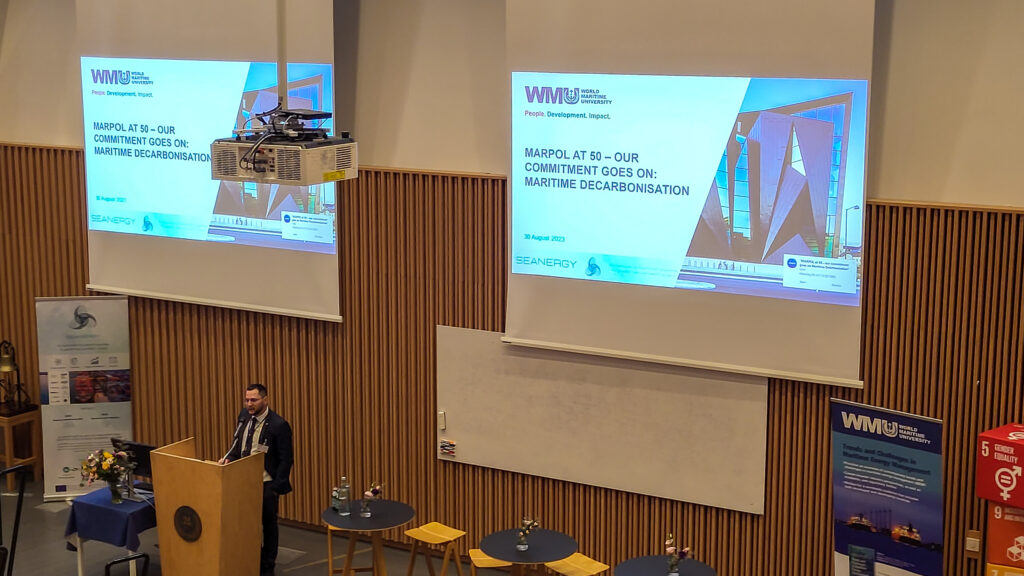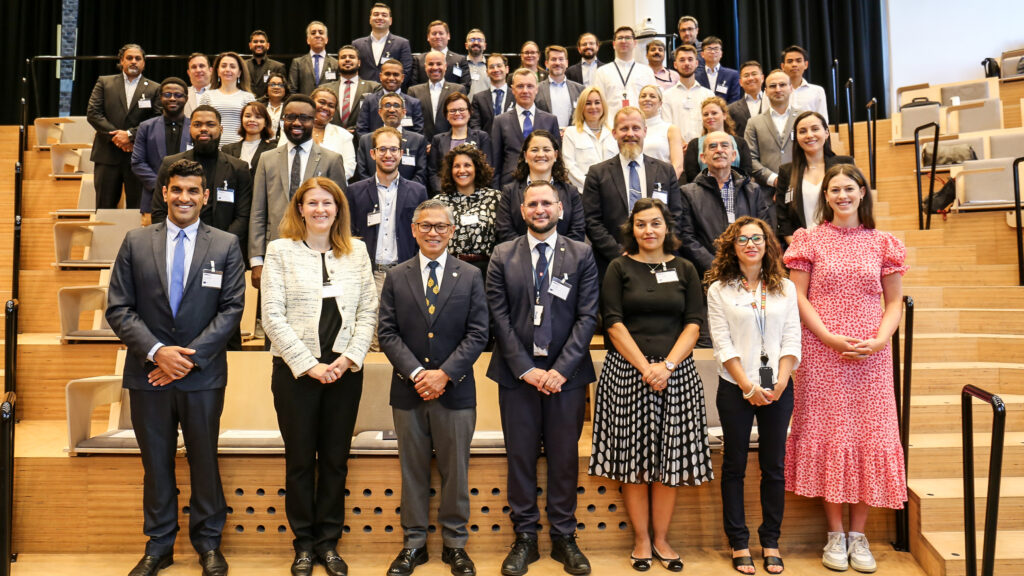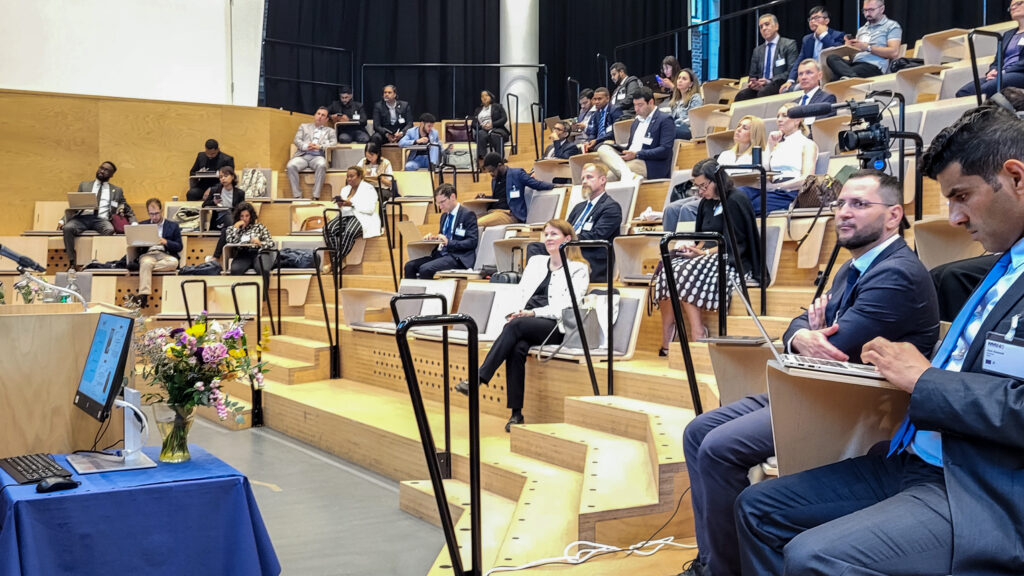The World Maritime University (WMU) organized MARPOL at 50, a two-days international seminar on the role of green technologies and capacity building in maritime decarbonisation. The event brought together 58 participants on site and 12 online, with the central support of the EU Horizon Europe funded project SEAENERGY.
During the first day, relevant stakeholders shared their perspectives on the role of green technologies and global cooperation towards maritime decarbonisation, highlighting important topics such as current progress, challenges, best practices, capacity building, life cycle assessment and cost-benefit analysis.

On the second day, roundtables were carried out allowing the identification of the main benefits and barriers in four broad topics: technologies, business models, policies and regulations, and global cooperation towards the decarbonization of the port sector, from an international and regional perspective.
The workshop served as a forum for in-depth discussions on the drivers and challenges in the pursuit of port decarbonization, as well as potential courses of action encompassing technology, business models, policies, and regulations. Participants emphasized the need for a comprehensive approach that integrates various stakeholders and strategies. Key areas of focus included the importance of collaboration, fostering partnerships between the private and public sectors to leverage resources and expertise.

Furthermore, the workshop highlighted the significance of developing comprehensive decarbonization strategies that span both private and public sectors for a cohesive and effective approach. This was emphasized in the context of local, regional, and global cooperation. The importance of research and development initiatives, coupled with training programs, as well as the implementation of stricter regulations, effective monitoring systems, voluntary agreements, and cooperation, emerged as critical components for the transition towards cleaner ports. Market-based measures and investments in green finance were recognized as beneficial tools for incentivizing emissions reduction.

Lastly, the workshop stressed the necessity of fostering cooperation not only within the port but also extending to ships and land transport for a more integrated and impactful transformation.